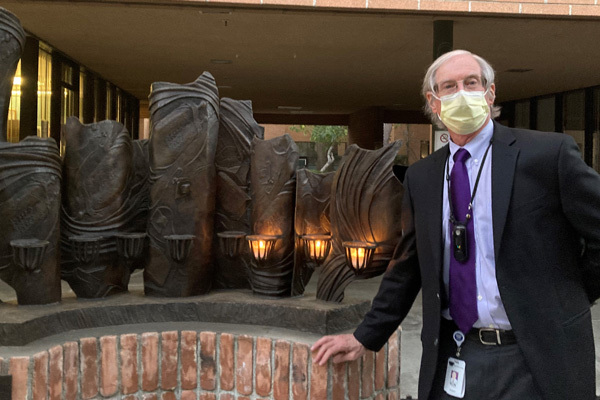Celebrating the Wonder and the Miracle of Chanukah


Celebrating the Wonder and the Miracle of Chanukah

To borrow from Adam Sandler, "Chanukah is the Festival of Lights. Instead of one day of presents, we have eight crazy nights". From those words of wisdom, we get the questions to address. What is this Festival of Lights? Why eight nights? In addition, while sufganiyot (jelly doughnuts) and latkes (potato pancakes) are awesomely delicious, why are they associated with Chanukah?
In the larger universe of Jewish holidays, Chanukah is known to be a minor observance. It certainly is not a holiday or observance on the level of Passover or Sukkot, let alone Rosh Hashanah. Even as we know Chanukah is a minor festival, Chanukah is beloved and its existence is widely known, if not understood. Here in America, Chanukah gets extra exposure because of the proximity to the Christmas holiday. Christmas is always December 25 but Chanukah follows the Jewish-Lunar calendar and can occur as early as Thanksgiving or fall in the later part of December. In that range of dates, Chanukah falls during what is commonly called the Holiday Season and becomes incorporated into it.
That takes us to a uniquely American ideal about the make-up of our nation. We inscribe on the coins of our currency E Pluribus Unum- or in the English "Out of many one". In America, we celebrate being united; additionally we treasure what makes each part of the American mosaic unique. As the majority of Americans observe one holiday, Americans of the Jewish faith observe Chanukah. At its core, Chanukah is the celebration of maintaining that uniqueness. In the days following the breakup of the empire of Alexander the Great, the dominant culture in the Mediterranean world was the Greek culture. It would have been easy and made their lives simpler for the Jews of those times to be swallowed by that Greek culture. Yet, they refused, they rebelled against assimilation and they elected to fight to maintain the faith and identity they inherited from their ancestors. At the conclusion of this struggle to remain unique in a larger culture, it was time to dedicate the great Temple in Jerusalem. Part of the dedication or Chanukah was lighting the menorah. On hand was only enough oil to last 1 day. It would take several days for more oil to be procured. Rabbinic legend is that the oil that should have lasted for 1 day actually lasted eight. For that reason, we light candles in ascending numbers each night, to remember this miracle of the oil lasting. In observing Chanukah, we celebrate our unique identity in a larger world. Jews chose to retain the faith of those who came before us and treasure that faith and uniqueness in a diverse world.

Finally and very importantly, why the latkes and sufganiyot? They are both linked to the miracle of the oil, as they both are fried foods. When I was a student in Israel, I marveled at the wide variety of sufganiyot-doughnuts on sale in every store and bakery. Naturally, I had to sample a cross section. My favorite? The chocolate frosted-halvah filled doughnut was the winner. Latkes are potato pancakes of course. There are many different recipes for them. You can use potatoes, sweet potatoes or even zucchini. Among the many toppings can be applesauce, sugar or what I recommend, sour cream. All are wonderful, all tasty without a doubt. Nevertheless, what is valued is to pause, gather together to bless and light the candles, sing the traditional songs and celebrate the wonder and miracle of Jewish identity in our day and time.